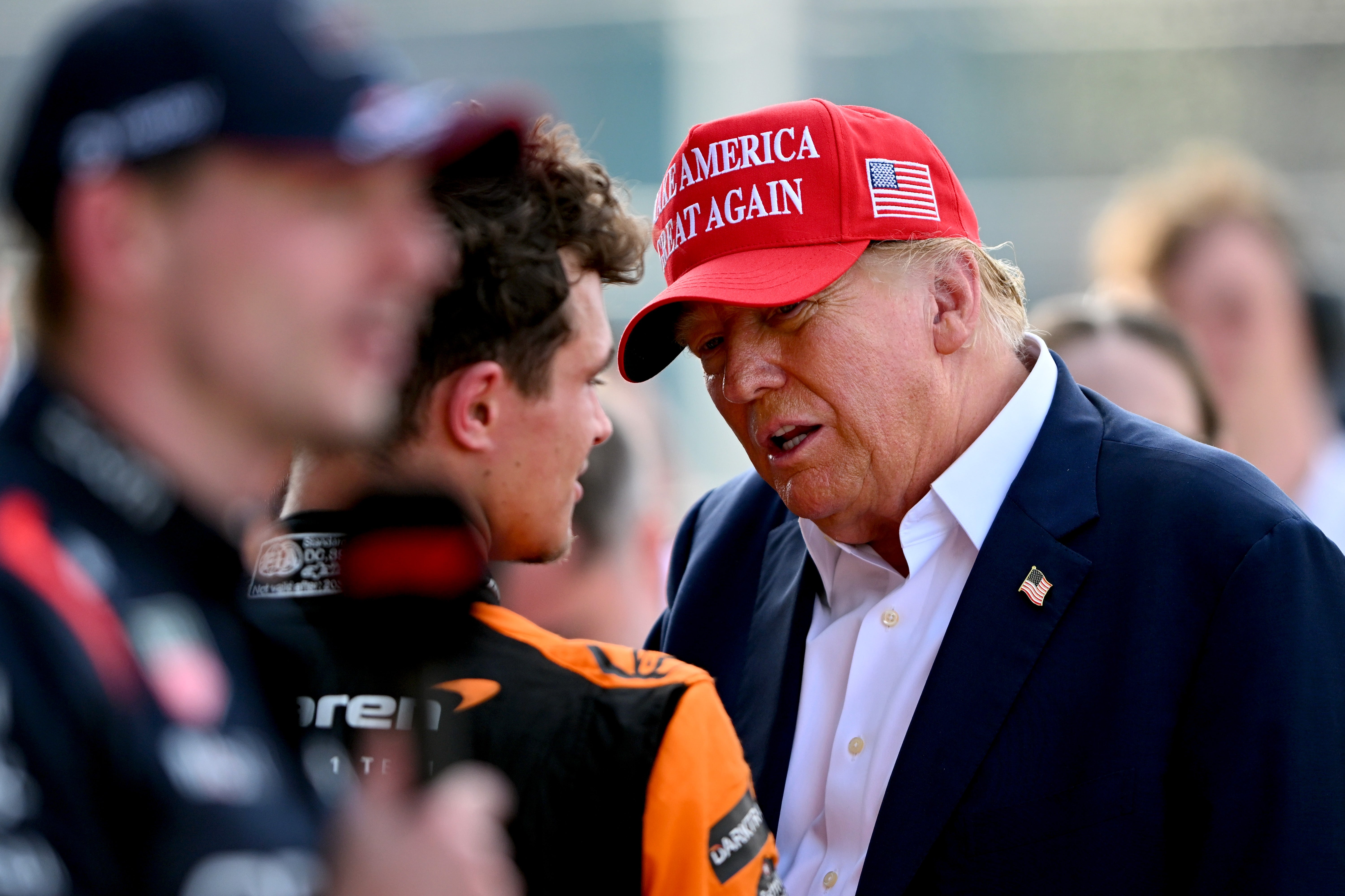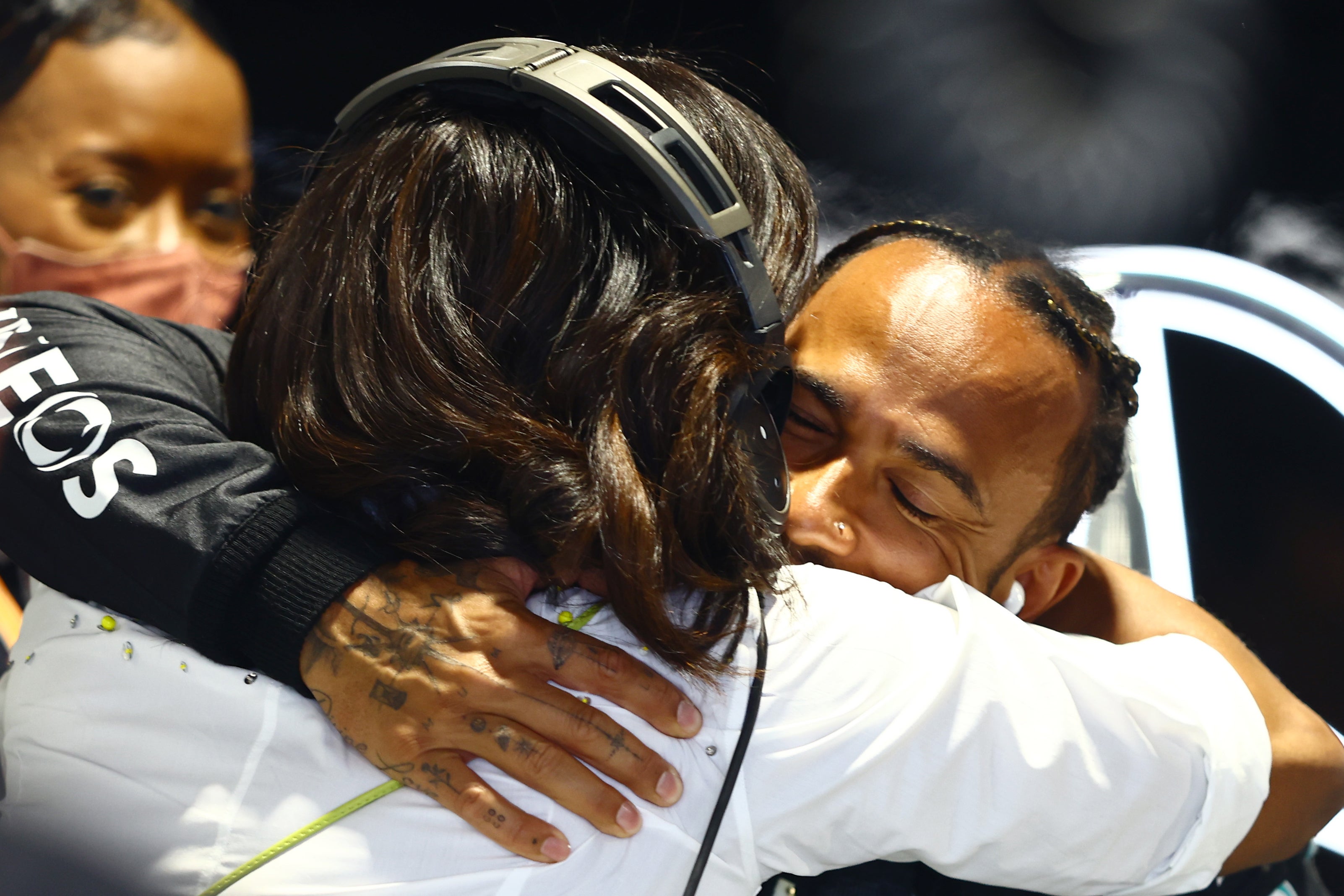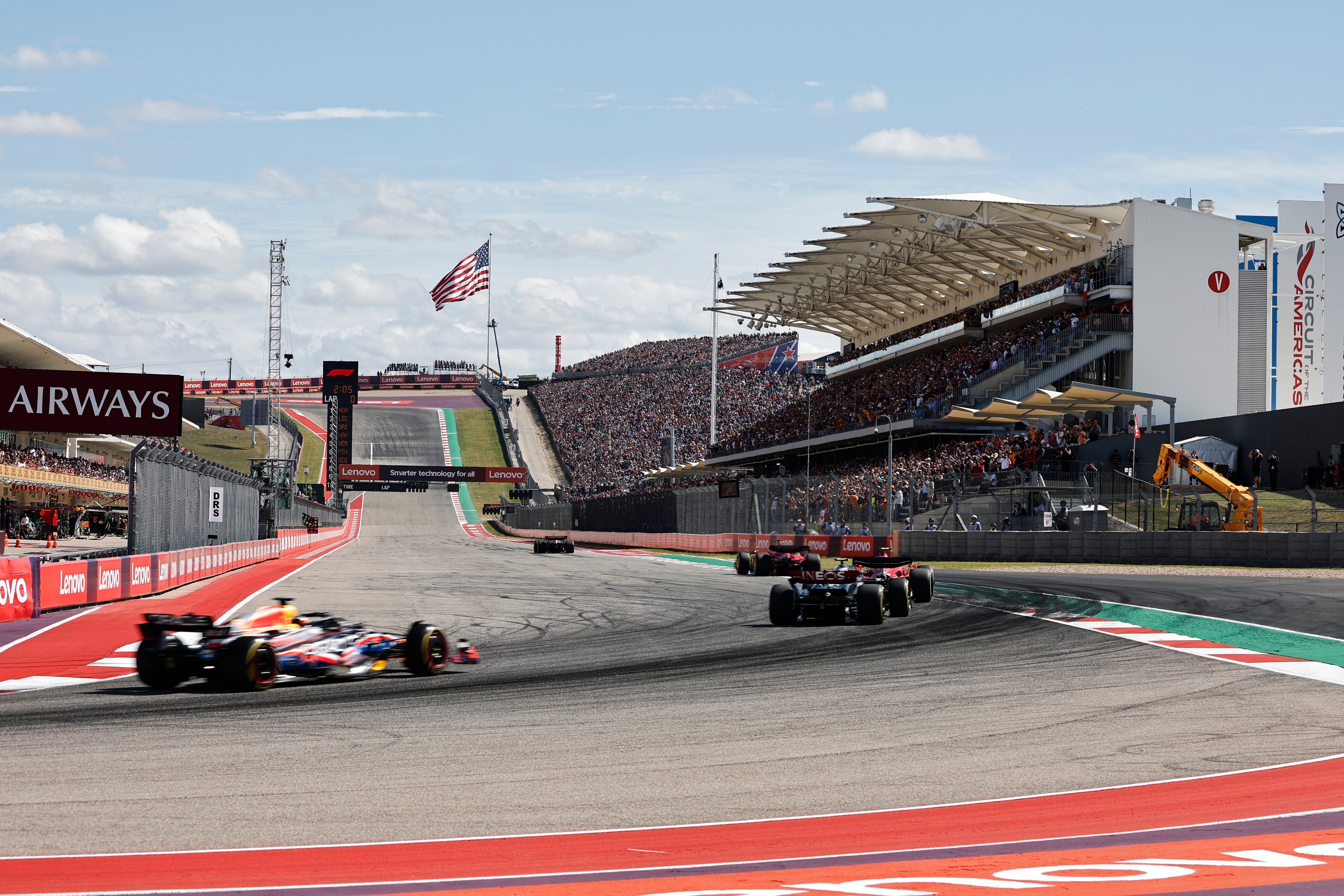
Your support helps us to tell the story
This election is still a dead heat, according to most polls. In a fight with such wafer-thin margins, we need reporters on the ground talking to the people Trump and Harris are courting. Your support allows us to keep sending journalists to the story.
The Independent is trusted by 27 million Americans from across the entire political spectrum every month. Unlike many other quality news outlets, we choose not to lock you out of our reporting and analysis with paywalls. But quality journalism must still be paid for.
Help us keep bring these critical stories to light. Your support makes all the difference.
For a sport which struggled for the best part of 70 years to find a home across the Atlantic, Formula One’s presence in the United States has reached unprecedented heights this year. And that’s not just a nod to the three US races, in Miami, Austin and Las Vegas, nor to the boom in popularity stateside – a result of Liberty Media’s 2017 takeover and Netflix’s Drive to Survive fever.
Rather it has been, ahead of the highly charged US presidential election on 5 November, the surprising arena for the two nominees to appear, promote and present themselves in a unique and increasingly attractive way to the electorate.
It started in May when Donald Trump attended the Miami Grand Prix at the Hard Rock Stadium, located around 60 miles from his Mar-a-Lago resort. Trump waltzed through the paddock surrounded by security personnel, was given a tour of the McLaren garage by CEO Zak Brown and was present on the grid as The Star-Spangled Banner was sung by Marc Anthony pre-race.

At the end of the race, after Lando Norris claimed his first F1 win, Trump congratulated the McLaren driver in person, stating he was Norris’s “lucky charm”. The 24-year-old Brit added: “Donald is someone you have to have respect for in many ways and I guess it was an honour for him to come up to me and to take the time out of his life to acknowledge what I’ve done – it was a cool moment.”
However, the whole episode was a tricky one to navigate for the sport and the team in question. McLaren, given the unintended connotations, released a statement emphasising their outlook as a “non-political organisation”. They added that they “respect the office of President of the United States”. Trump’s team had asked McLaren for a tour, not the other way around. Brown acquiesced, giving the Republican nominee his first taste of modern-day F1.
Yet it wouldn’t be the last time F1 and the race for the White House coalesced this year. Not to be outdone, last week the Democratic nominee Kamala Harris revealed her “love” of the sport. She told radio broadcaster Howard Stern: “It’s [F1’s] so good – we love it, our whole family does.”
The vice-president quickly hit back when the host claimed it was a “campaign thing”, while also exhibiting her knowledge of her favourite driver, Lewis Hamilton: “He’s leaving Mercedes. You should see it [F1], you might get hooked, it’s good stuff.” US channel MSNBC posted a TikTok of the clip on Monday and, as of Thursday, the video has amassed more than six million views.
But do Trump and Harris’s intriguing flirtations with F1 in 2024 matter? Are they at all significant? What does any of it mean?

For a start, it unequivocally speaks to the good health and allure of F1 in the US. Central to political campaigning has always been links to popular culture, namely the arts and sports. You’d need only to see the furore surrounding Taylor Swift’s endorsement of Harris last month, a story which almost transcended the debate between the nominees on the same night.
Elections are, in many ways, the ultimate popularity contest and associations with famous figures – whether it be singers or sports stars – are often pursued by campaign teams. Trump’s appearance in Miami in May came at a time when he was under intense scrutiny, amid his hush-money trial in New York.
Never one to shy away from the spotlight in times of controversy, Trump was notably cheered by fans in the grandstand in Florida, a traditional swing state which the 78-year-old has won in the last two elections.


Meanwhile, Harris – in an election where gender plays an obvious role with the United States one vote away from potentially electing its first female president – perhaps used this moment, a week before this weekend’s US Grand Prix in Austin, to appeal to a certain voting demographic.
F1 boss Stefano Domenicali stated in 2022 that 40 per cent of F1 fans are now women, a statistic which largely reflects the increase in popularity of the sport stateside with a younger, more diverse audience. F1’s growth in the US has been monumental – so why shouldn’t the candidates use it as a way to speak to those going to the ballot box?
As for the impact this weekend, with F1 returning following a four-week break with Norris in a battle for the title with Max Verstappen, it will be intriguing to see whether politics plays its part in the press room. If asked, will drivers comment on the forthcoming election, or ignore it? You’d imagine the latter but, more so than ever, this is a collection of drivers who speak out on issues beyond their sport.
Politics in the US has always had the potential to enter the F1 sphere. Whether it’s Lewis Hamilton condemning the Supreme Court‘s decision to overturn Roe v Wade two years ago, or Sky F1 pundit Danica Patrick chairing a town hall with Trump’s running mate JD Vance in North Carolina last week, rumblings of election day will echo in the background at the Circuit of the Americas this weekend (a venue where F1 set its American attendance record of 440,000 over three days in 2022).
For Trump and Harris, the sport has been used as a valuable, albeit brief, medium to promote themselves as they target the White House. However, for executives at Formula One Management and owners Liberty, it will only exacerbate their belief that the sport has never been more popular – or more in tune with public consciousness – in the “Land of the Free”.







